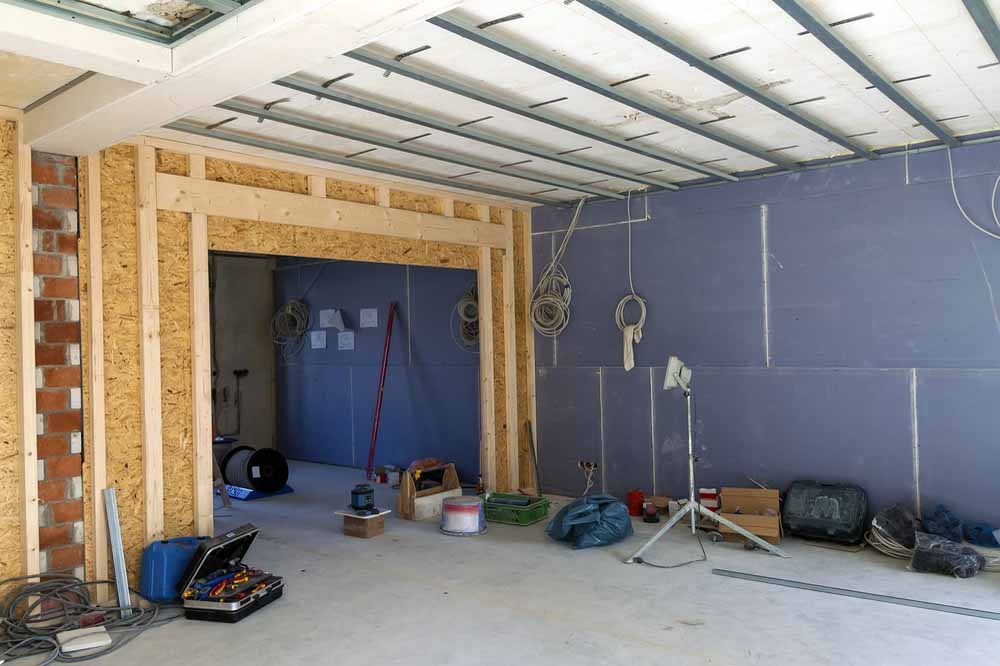Fined For Renovating Your Own Home? Get To Know The Rules And Regs
Building, extending, renovating or developing a property is both exciting and overwhelming. Get it right and you can maximise the return on your investment or create the home of your dreams with that home renovation! But, just because you own a property doesn’t mean you have carte blanche to chop, change or develop it as you see fit. Did you know you can actually get a hefty fine for renovating your own home?
Before renovating, it’s crucial to understand the laws, codes and planning restrictions that relate to your property. Without these, you could be left facing costly court proceedings, not to mention seeing your property dreams hopelessly tangled up in red tape for years.
Why one home owner’s mistake is a lesson you should take on board
A 2015 article in the Courier Mail highlighted this case in point. A Salisbury homeowner was slapped with a massive fine for turning his single dwelling into three dwellings. His error? He didn’t take steps to obtain the necessary permits and approval from his local council. He’s now facing the prospect of costly building works to return the property to its original state.
It just goes to show that if you haven’t taken a deep breath, stepped back and done your homework on what you can and can’t do, legally, you’re bound to run into trouble.
The Building Code and how it affects your property plans
There are a whole lot of reasons why your home renovation plans for your property are subject to fairly intense scrutiny by local councils and other relevant agencies. It may seem unfair, given that you are the owner of the property, but councils are relied upon to ensure the safety of the community – and monitoring building practices is one way of doing this.
All buildings need to comply with the Building Code, including the National Construction Code (NCC) – 2015. Volume 2 of the NCC applies to residential buildings. Essentially it sets out the minimum requirements for the design and construction of homes. The requirements applicable to commercial buildings are set out in Volume 1. Together, these two volumes set out the Building Code.
One of the things that the Building Code does is to impose on you an obligation to ensure that local conditions that might foreseeably pose a danger are factored in to your property development. For example, in bushfire-prone areas, you have to take measures to mitigate the risk, such as the fitting of fire attenuation screens. These are the sorts of ‘risks’ you may not consider if you were to go it alone on a renovation. No matter what your plans are for your property you must comply with the Building Code.
Your local council and your home renovation plans
In many cases you have to obtain approval from your local council if you want to raise, extend or renovate your property. For the most part, your local council regulates what you can and can’t do with your property and whether you have to get permission first. There are several key reasons for this approach.
Zoning
Your local council also has a big say in ensuring that changes to a property are in keeping with their plans for development in that local area; like keeping an eye on population density and infrastructure planning, for example. It also ensures that residential, commercial and industrial areas are kept separate to ensure residents aren’t adversely affected by factories, noise and pollution. This is all done through zoning.
The zone you’re in governs the uses to which you can put your land. Common zones include low density residential, low-medium density residential, medium density residential and rural zones, to name a few.
Overlays
Planning and property development regulations are also used to preserve the ‘look’ of an area, the things that locals love about it and its history. It does this by ‘overlays’. It can be a valuable tool assisting in the conservation of the local environment, unique flora, fauna and waterways. If your property is subject to any overlays (for example, heritage, bushfire, flooding, landslide, significant vegetation, and waterways corridor overlay) then that becomes a relevant consideration in determining whether you need planning approval before you bring your plans to life. Land subject to heritage or waterways corridor overlays are subjected to much more intense scrutiny than areas to which an overlay doesn’t apply.
Lot size
In many cases, the size of your land also affects whether you need to get planning permission from your local council. Your council can also inform you of the latest restrictions on making use of your lot; for example, pools, patios or backyard sheds may need to be a specific distance from neighbouring fences.
Neighborhood plans
Your particular area might also be subject to a neighborhood plan, depending on your council. A plan of this style puts some restrictions on the colours and styles of any renovations, and height limits on multi-storey builds. This might also affect whether you need to obtain approval from the council before commencing work on your property.
If you keep all of those things in mind, the regulation of what you can and can’t do with a property actually starts to make perfect sense.
Council approval or not?
If you’re looking at making minor alterations to your property that don’t affect the shape, structure or height of the property, in many cases you won’t need to get approval before proceeding. However, if you’ve got a large scale home renovation in mind, chances are that you won’t be able to proceed without council planning approval and all relevant permits. Sometimes, this can be a long and frustrating process when you’re in a hurry to bring your vision to life.
Whose responsibility is it to get the necessary permits and approvals?
As the owner of the property, the responsibility rests on you to ensure that you obtain all necessary permits and approvals before proceeding with work on your property. You can contract out that responsibility to a builder or other relevant party, but you need to take steps to ensure that there are clear demarcations as to whose responsibility it is to do what in your contract.
Illegal building works and works without a permit – Who really suffers?
It’s not just the person who makes the changes to a property who can suffer the consequences. It’s also any subsequent purchaser of the property who fails to check on the legality of any building works previously carried out. They might have put in an offer on their dream property only to find themselves saddled with something that’s built on lies and without council approval. In some cases, they might even be directed to tear it down.
You can take steps to protect yourself from a dodgy home renovation in two main ways:
- Ensure that you use an experienced and professional conveyancer who orders the necessary searches for evidence of illegal building activity; and
- Obtain a thorough building inspection to check for any physical signs that building works may have been carried out without approval or in a manner that doesn’t comply with the Building Code.
Don’t risk being hit with a fine when you thought you were creating a dream home!
Action Property Inspections have over 28 years’ experience in carrying out thorough and professional inspections. We offer detailed, unbiased reports with a very quick turnaround. Book online or call us today to discuss you pre-purchase building inspection needs on (07) 3201 2666 or freecall 1800 642 465.

